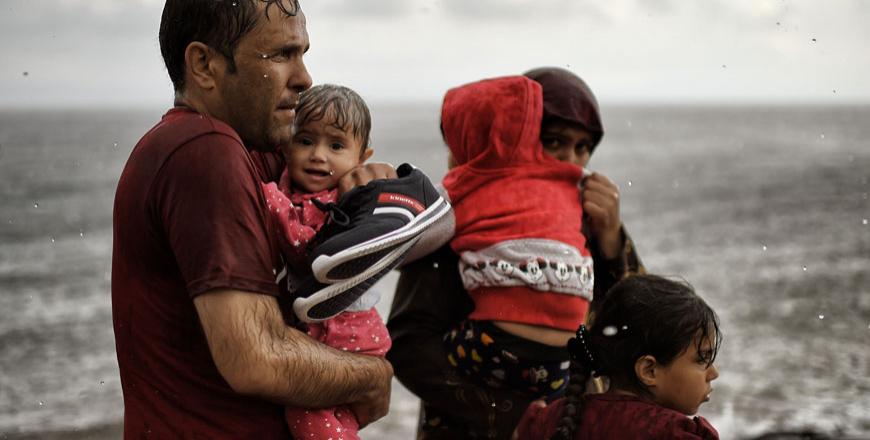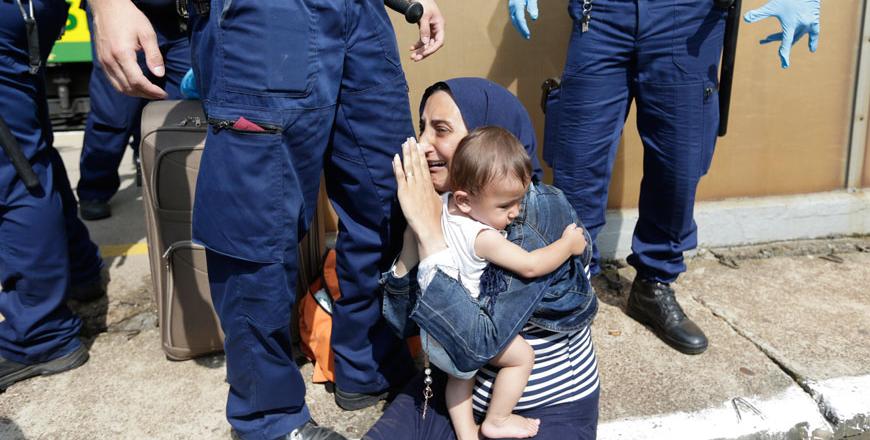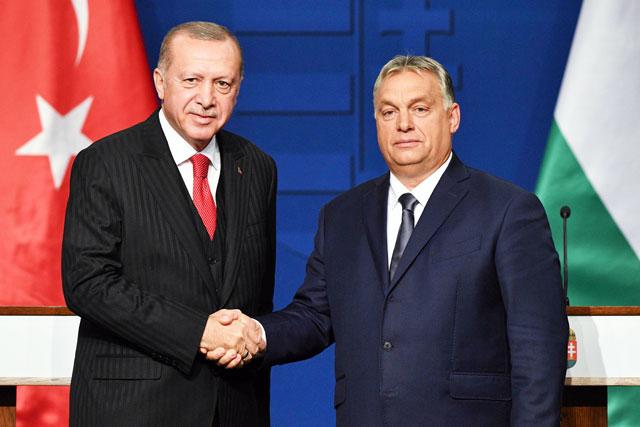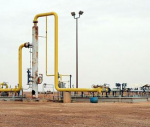You are here
Merkel, Orban mark Iron Curtain anniversary amid new divides
By AFP - Aug 19,2019 - Last updated at Aug 19,2019
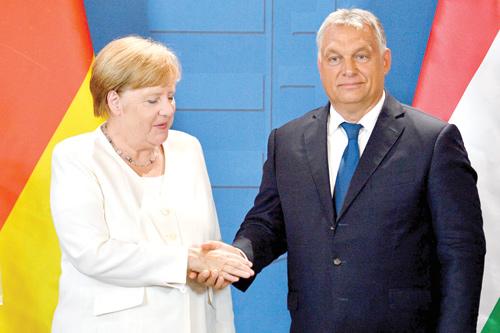
German Chancellor Angela Merkel and Hungarian Prime Minister Viktor Orban shake hands following a press conference during their meeting in the Hungarian-Austrian border town of Sopron on Monday (AFP photo)
BUDAPEST — Hungarian Prime Minister Viktor Orban welcomed German Chancellor Angela Merkel to the city of Sopron on Monday to commemorate a pivotal moment in the fall of the Iron Curtain in 1989.
While on Monday's meeting sees them celebrating the tearing down of a historic barrier in Europe, the question of how the continent's borders should be managed now has strained the relationship between the two leaders in recent years.
Orban has been a sharp critic of Merkel's 2015 decision to open German borders to those fleeing Middle Eastern conflict zones.
The pair are marking the 30th anniversary of the "Pan-European Picnic" at the Hungarian-Austrian border, during which at least 600 East Germans crossed the border and escaped to freedom in the West.
The events at the picnic represented the first massive exodus of East Germans since the construction of the Berlin Wall in 1961 and was seen as a key factor in the fall of the wall itself three months later.
The commemoration is a rare encounter between the two of the great survivors of European politics, with Merkel in office since 2005 and Orban since 2010.
Their last major bilateral meeting was in July 2018 when Orban made his first visit to Berlin for three years.
It was an awkward affair during which their divisions were on full display and Merkel accused Orban of failing to respect "humanity" with his harsh anti-migrant policies.
'Grateful' to Hungary
Hungarian Foreign Minister Peter Szijjarto met Merkel on Monday morning near Sopron, where she arrived by helicopter.
Both Merkel and Orban then arrived at an ecumenical church service in Sopron, where they were expected to deliver addresses.
A working lunch is also expected to be on the agenda before a joint news conference at around 12:45pm.
The two leaders were both personally marked by the events of 1989 but have since taken starkly diverging political directions.
Merkel's upbringing in communist East Germany imbued her with a belief in the importance of liberal values in politics and free market economics.
Orban by contrast, while starting as a young liberal leader in 1989, sees the events of that year as the first step in the nations of eastern Europe reestablishing their national sovereignty.
Merkel dedicated her weekly podcast on Saturday to the importance of Monday's visit, saying Germans would "always be grateful" for Hungary's "contribution to the bringing about of the miracle of German unity".
Her spokesman Steffen Seibert has admitted that the "differences of opinion" between the two leaders on issues such as refugee policy were well known and that they would tackle current events in their discussions.
Despite the political tensions between the two, Hungary and Germany enjoy close economic relations.
Germany is Hungary's largest trading partner and a major source of foreign investment, particularly in the form of the mighty German car industry.
Related Articles
BERLIN — Germany toughened rules Tuesday for asylum seekers from the Balkans as Europe struggled to cope with a record surge in migrants, wi
BICSKE, Hungary — Migrants threw themselves onto railway lines and scuffled with helmeted riot police trying to take them to a reception cen
BUDAPEST — Turkish President Recep Tayyip Erdogan heads to Hungary on Thursday for talks with Prime Minister Viktor Orban — a rare EU ally —


